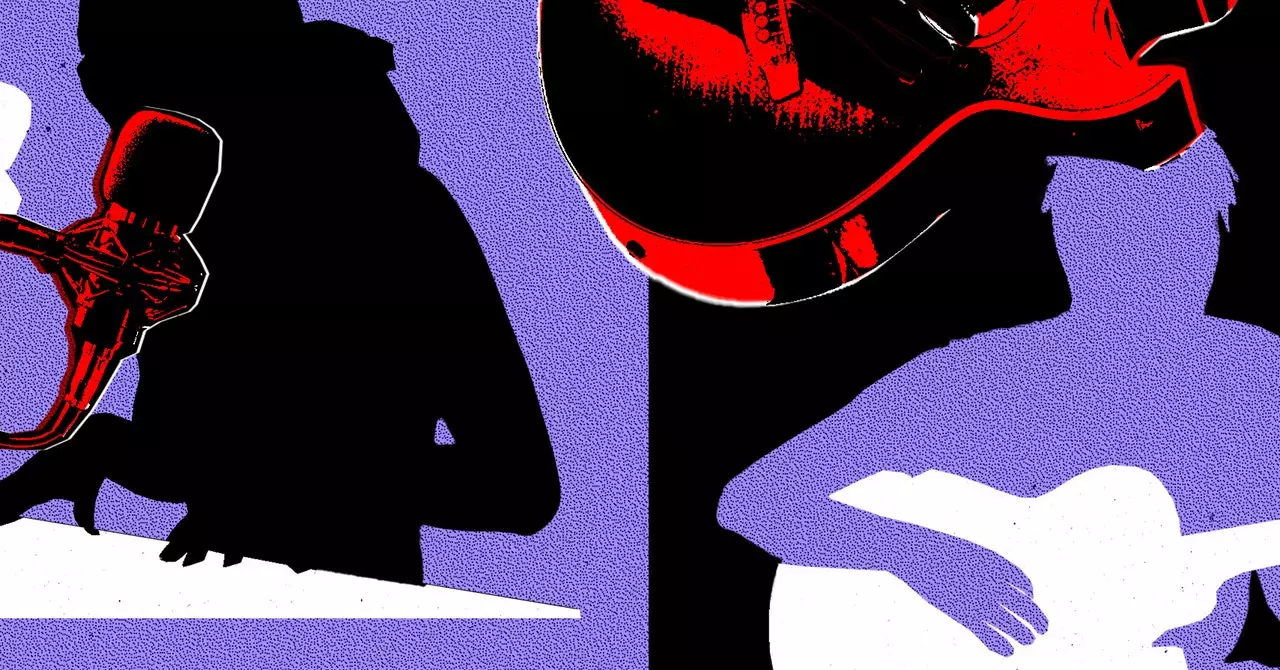The music industry has witnessed a tremendous transformation with the advent of artificial intelligence (AI) tools. While some tools are designed to generate music from the ground up, others focus on more nuanced tasks, such as extracting stems, mixing and mastering tracks, and brainstorming lyrics. The integration of AI applications into the creative process is increasingly attracting a diverse range of users, from amateur hobbyists to seasoned professionals. However, this technological progression invites a myriad of responses from within the industry, thus raising critical discussions about adaptation and authenticity.
Unlike pioneers like Google’s MusicFX and other fully generative AI music platforms, the emerging AI toolset provides musicians with specialized solutions that enhance their existing workflows. Renowned pop producer Sam Hollander, who has worked with major names like Panic! at the Disco, likens the current situation to the introduction of drum machines in the 1980s. Session musicians were compelled to evolve or risk becoming obsolete, a sentiment that resonates today as producers incorporate AI into their creative arsenal. For instance, a producer in the UK’s grime scene harnessed both Suno and Udio to create unique funk and soul samples, showcasing how AI can facilitate the ideation process before integrating those elements manually into a final composition.
Paths of Resistance and Adaptation
As the technology permeates deeper into music production, the industry’s response can be split into two distinct avenues: one that embraces complete organic creativity, opting out of AI’s influence, and another that recognizes AI’s potential to augment creative endeavors. Recently, a significant number of artists signed a letter asserting that using AI to train models based on their work is a direct threat to their livelihoods. This alarming sentiment highlights apprehension about the implications of AI—a force that could significantly shift the value of human artistry.
On the other hand, artists like Hollander demonstrate that embracing AI tools for brainstorming and sourcing samples can coexist with original lyricism. For him, the human element remains indispensable, akin to a set of creative guardrails that prevent AI-generated outputs from veering into mediocrity. He notes that AI-generated music must maintain a level of originality and emotion—qualities that pure AI struggles to replicate at this stage.
The Humor and Shock Factor: Creativity’s New Frontier
A common critique of AI-generated music revolves around its inability to evoke genuine humor and emotional depth—elements crucial in comedic and impactful art forms. As fans of unique and experimental sounds, audiences are driven by the novelty that AI can occasionally offer. Projects like the infamous viral SpongeBob rap exemplify the allure of humor in AI-generated content while also reflecting a deeper cultural commentary that resonates with listeners. Here, the human influence remains paramount; without original lyrics and concepts, AI outputs often slip into a realm of generic, uninspired creations.
In a different vein, another burgeoning aspect of AI applications in music is the production of ambient and chill soundscapes. Channels such as Home Alone on YouTube illustrate how AI-generated music can attract millions of views while operating beneath the radar of mainstream attention. Initially regarded as mere experiments, ambient AI compositions have quickly become an accepted segment of contemporary music listening. This phenomenon indicates a subtle yet significant shift, where AI-generated works become indistinguishable from those crafted by human hands.
The changing dynamics prompted by AI’s influence in music yield a complex narrative—one where artists must navigate between innovating with technology and preserving their artistic integrity. As creative minds grapple with this dual narrative, the future of music finds itself at a crossroads. Will artists choose to integrate these tools and redefine their processes, or will the preservation of traditional artistry foster resistance against AI? Either way, the symbiosis between creativity and technology presents an intriguing landscape that promises to shape the future of music for years to come.


Leave a Reply